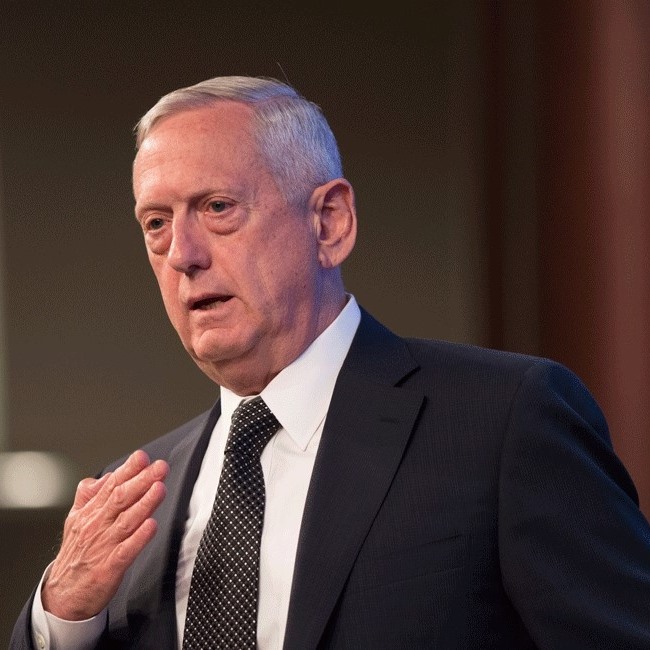Canada News
US defence secretary says he’s fond of Canadian troops, cites Afghan experience

At a meeting at the Pentagon on Monday, retired general James Mattis said there’s a reason his first phone call to a foreign counterpart was to Canada’s Defence Minister Harjit Sajjan. (Photo: James Mattis – Secretary of Defense/ Facebook)
WASHINGTON –Donald Trump’s defence secretary says he’s so grateful for Canadian soldiers he could kiss them.
At a meeting at the Pentagon on Monday, retired general James Mattis said there’s a reason his first phone call to a foreign counterpart was to Canada’s Defence Minister Harjit Sajjan.
The U.S. and Canadian military have been close allies since the Second World War, he said, and he experienced that bond personally in Afghanistan.
He noted that when he was in Kandahar, he wanted to hug and kiss every Canadian soldier he saw stepping off the plane.
He said the lives lost in the Afghan conflict cemented a deep bond between the countries.
The message from Mattis was striking in its difference from that of his boss: Monday, the president said he expects allies to start doing their fair share and spending more on their military. Canada spends less on its military as a share of its economy than almost any member of NATO.
Sajjan was at the Pentagon for his first meeting with his newly sworn-in American counterpart.
The two former soldiers-turned-cabinet-members scheduled a 45-minute discussion on a broad range of topics including military co-operation both abroad and closer to home.
Key questions could include the ongoing commitment to NATO, defence spending levels, and peacekeeping operations.
The Canadian government delayed a planned peacekeeping deployment to Africa following the U.S. election, saying it wanted to first discuss a variety of global issues with its closest ally.
Trump’s election has prompted uncertainty on several military fronts _ he has suggested NATO is becoming obsolete, while at the same time demanding that NATO allies increase defence spending.
He repeated his complaints about NATO spending during a speech Monday at an air force base in Florida.
He said he supports NATO, but countries must pay their share.
“We only ask that all of the NATO members make their full and proper financial contributions to the NATO alliance, which many of them have not been doing,” he said.
Trump has also been more supportive than his predecessor of Russia, which has caused anxiety in Eastern Europe.
One Canadian-American military analyst said this first meeting could provide some clarity.
Steve Saideman says it’ll be interesting to see what aspect of NATO was discussed –would it focus on what Trump has talked about, increasing spending, or on what he hasn’t –protecting Eastern Europe from Russian incursions?
“Which NATO issue comes up might actually provide you with some guidance about what’s going on in this administration,” said Saideman, an American-born international-relations scholar at Carleton University in Ottawa.
Aside from the future of NATO, he expected them to discuss two other topics Canada’s peacekeeping plans and fighter-jet procurement. As for NORAD, Saideman doesn’t believe missile-defence is a major priority for Trump’s team.
Trump has sowed uncertainty on several of these fronts. He’s complained about the cost of the F-35, a staple of the U.S. fighter-jet program. Also, in his inauguration speech Trump heaped scorn on the U.S. habit of defending other countries.
Mattis spent last weekend in Asia, reassuring traditional U.S. allies. During the campaign, the president questioned why the U.S. should spend money securing Japan and South Korea –he went as far as suggesting, at one point, that they should get their own nuclear weapons.
Trump later dialled that back. But he said he wants allies spending more on defence. That was also the policy of the previous Obama administration and the former president even made that request in Canada’s Parliament.
Barack Obama, however, delivered it with a slightly softer touch. In fact, he received a standing ovation from Canadian parliamentarians last year after saying: “The world needs more Canada. NATO needs more Canada.”
It’s unclear where that conversation goes now.
Canada is 23rd among 27 NATO countries in terms of spending as a share of GDP. Canada’s 2016 spending of 0.99 per cent of GDP was less than half the NATO guideline of two per cent, which only five NATO countries currently meet.
Saideman said he’s keen to hear what the new defence secretary said.
“With the caveat of: I don’t believe anything that Mattis says binds this administration. … Mattis is in the outer circle –and has been bypassed on major issues.”





















